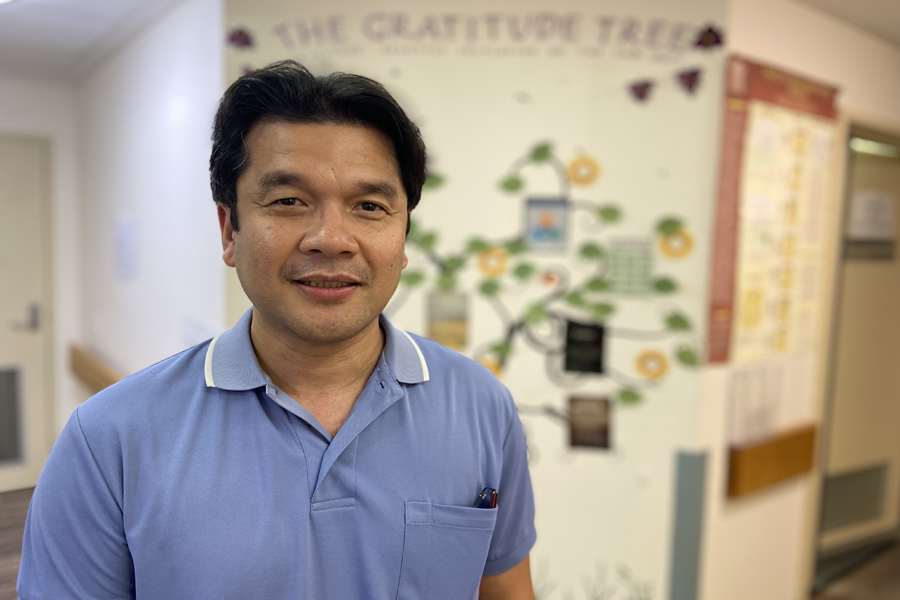Pitching in for better dementia care

TPCH CAM Unit Clinical Nurse Clinical Facilitator Reyonald ‘Jake’ Javier
At the Cognitive Assessment and Management (CAM) Unit at The Prince Charles Hospital (TPCH), the team are responsible for caring for dementia patients experiencing behavioural disturbances.
The specialist staff not only provide a high standard of care to these patients but consistently develop and pioneer new assessments and frameworks as part of the TRIAD Dementia Care Model to ensure they are continually improving on the service they provide.
TPCH CAM Unit Clinical Nurse Clinical Facilitator Reyonald ‘Jake’ Javier has been working within Metro North Health since 2007 and is highly skilled at navigating challenging situations with dementia patients.
“In the CAM Unit, 100% of our patients are the 10% of the most challenging patients from nursing homes,” Jake said.
“They’re not being difficult or ‘just confused’; they have unmet needs. Our job is to identify those needs and respond.
“We try to see and feel the world as the patient living with dementia does and humanized their behaviour. As a nurse, we go with the flow and we adjust because our patients can’t.
“You become a bit of a Sherlock Holmes with patients who are struggling to express their needs. I hold that no matter how unusual the behaviour looks, there is a human intention and a need behind it.”
Jake said that dementia nursing is not just physically demanding, but can be emotionally and mentally draining too.
“To help combat burnout and compassion fatigue, I find that shifting our perception and practicing gratitude at work builds resilience,” Jake said.
“It helps us spot the good in hard moments, pulls us out of negativity, and keeps us connected to each other instead of siloed.
“The team also help bridge the gap with families and patients so both parties can understand each other better.”
Jake and the team use the following principles and frameworks regularly while caring for their patient cohort:
TIPPING Principle
- Tolerate the behavior that challenges
- Interpret the responsive behavior (using PITCHED)
- Provide alternatives to the challenging behaviours (activity/engagement).
PITCHED Framework Principle
- Pain – Regular assessment and management of pain and discomfort
- Infection – Monitor for potential signs and source of infection
- Thirst – Maintain fluid balance and encourage fluid intake
- Constipation – Monitor bowels and consider aperients
- Hunger – Monitor nutrition: ensure meal set up, provide dentures, food preference etc
- Environment – Address the three domains (external stressors like light noise, crowding, temperature, internal body state like hormones, bloods, bladder/bowel, toxicity, sleep–wake rhythm and internal mind state – the person’s lived reality)
- Drugs – Regular medication review, avoid polypharmacy, minimise use of psychotropic.
For further information on the CAM Unit, visit Cognitive Assessment and Management Unit | The Prince Charles Hospital
